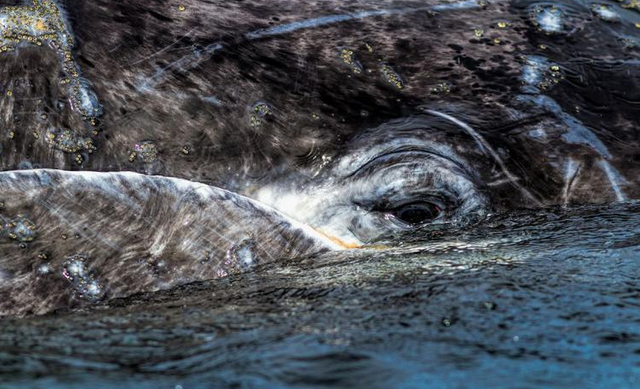A Whale of a Controversy

Ten of us have our eyes prepared on the water, examining to and fro and to and fro, when somebody focuses to a white splash somewhere far off. With one side more limited than the other, this blow is ambiguously heart-molded. Carrie Newell, sea life scientist and proprietor of Whale Research Eco Excursions in Depoe Bay, Oregon, had disclosed prior to our visit bunch that Comet is not difficult to spot on account of this disproportionate blow, brought about by an incomplete blockage in his blowhole.
"That is him!" she shouts. "Come to us, Comet!"
His knotty back cuts the water in an orderly fashion toward our boat; another blow and afterward he's gone. There's chuckling and applauding, and much checking of the telephone photographs we whale watchers have wildly snapped—none of which catch the sensation of having recently seen a dim whale.
This is the nearest the majority of us have at any point been to a whale. Newell, then again, is around here on Depoe Bay on different occasions a day from May through October, and these dim whales—individuals from the Pacific Coast Feeding Group, an interesting gathering that stays in the Pacific Northwest all through the mid year as opposed to relocating toward the south—regularly swim straight dependent upon her boat.
"Did you see the heart shape?! Did you see that?"
Guiding the boat into a position more qualified to ideally getting Comet when he restores, Newell's excitement is infectious. Yet, as of late, so is her displeasure. At the finish of 2019, Newell tossed her energies into giving declaration pointed toward forestalling individuals from the Makah Tribe, who live around 460 miles north of here on the Olympic Peninsula's Neah Bay, from continuing a 2,700-year custom of chasing dark whales. The November 2019 regulatory preliminary occurred after NOAA conceded a restrictive waiver for the clan to continue whaling because of the Makah's solicitation, which they documented in 2005.
In return for surrendering a large number of sections of land of land to the US government in 1855, the Makah tied down the option to keep chasing whales under the Treaty of Neah Bay. That settlement set up the Makah as the solitary US Native American country with a whaling right unmistakably determined in its arrangement—however the clan willfully quit chasing during the 1920s, when the dim whale populace dwindled perilously because of overeager business whaling.
By the 1940s, two or three hundred eastern Pacific dim whales swam in the Pacific Northwest. They've since bounced back to a solid populace, numbering around 26,000 today. Which is the reason the Makah looked for an exclusion to the government prohibition on whaling. The National Oceanic and Atmospheric Administration obliged in April 2019, expressing that the Makah could chase a normal of four eastern North Pacific dim whales every year—not to surpass five in any one year, or 24 in any six-year time frame—for the following decade.
The Makah contend that this privilege is now ensured. Notwithstanding, subsequent to encountering a horrible public reaction to a comparative endorsed chase back in 1999, they're presently taking an interest in a drawn-out fight in court prior to practicing that privilege once more.
"I thoroughly see how Carrie Newell loves these radiant animals," says TJ Greene, Makah Tribal Council executive. He recognizes that Newell, and every individual who shares her perspectives, clearly needs to secure the whales. However, so do the Makah—a country that has been very much aware of this gathering of whales since a long time ago before they were recognized as the PCFG. "From our angle, we need exactly the same thing," says Greene, who clarifies that whaling addresses an entire group of stars of practices present in practically every part of Makah individuals' lives. "That is the reason we saved that deal right. We comprehended the significance of the sea. We comprehended relocation designs. At the point when we are practicing our deal option to chase and reap whales—that doesn't occur without the assurance of the asset and the natural surroundings. It's not independent."